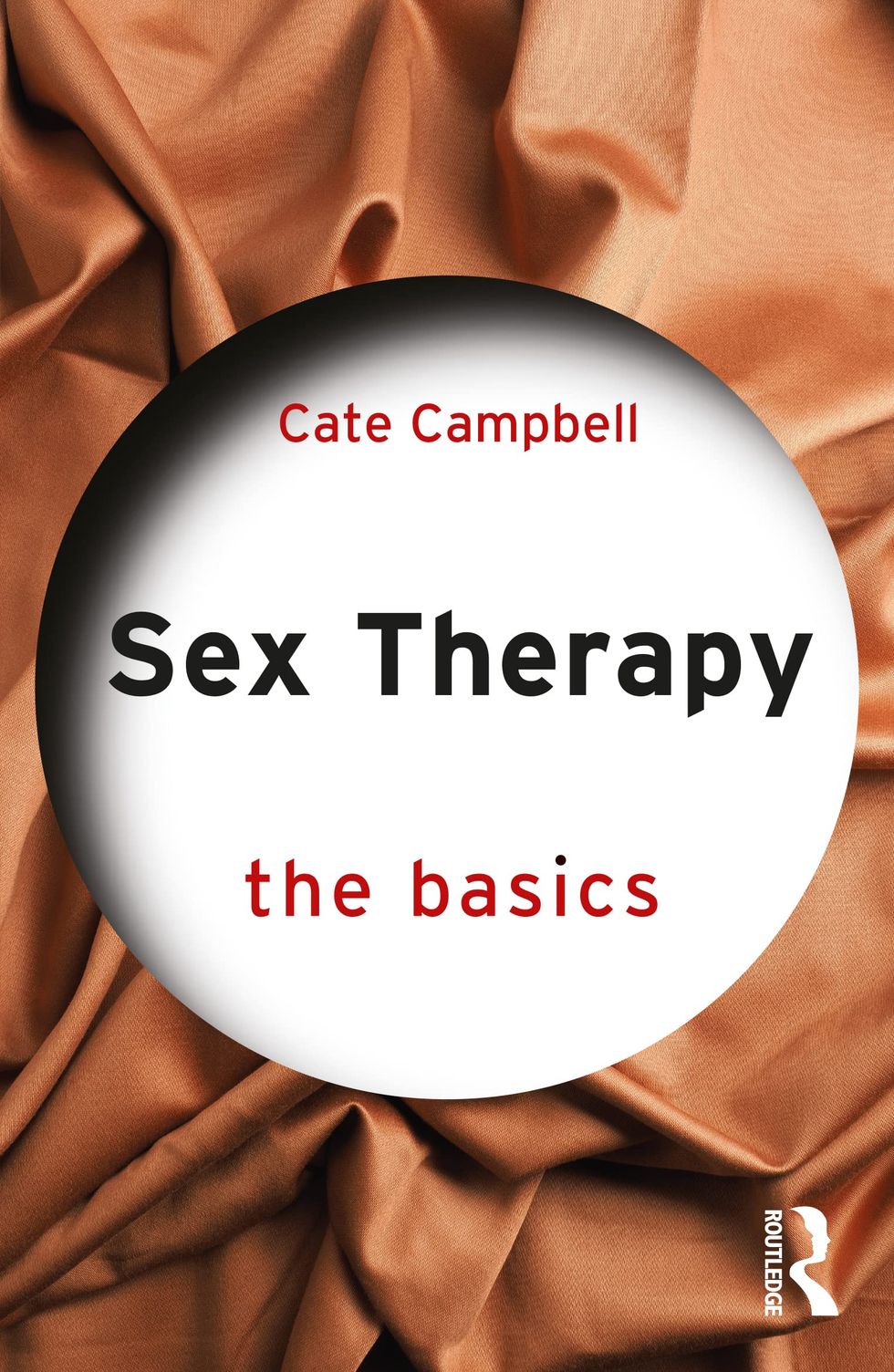Despite "intimacy" being a word many of us throw around when talking about relationships, there are a surprising amount of misconceptions about what intimacy actually means.
There's a physical and an emotional closeness in romantic relationships that's important to maintain, and this can be a challenge for some people, especially with different attachment styles and differing attitudes to what makes a healthy relationship. It's important to acknowledge that when we talk about intimacy, we're talking about two different types – sexual intimacy and emotional intimacy.
To differentiate between the two types of intimacy and give us some answers on how to connect with your partner and share intimacy, we asked Psychosexual therapist, BBC One’s Sex on the Couch presenter and author of audiobook 12 Steps to Sexual Connection, Lohani Noor for the lowdown.
What is intimacy?
"When people say intimacy, they normally think about sex. And of course, sex is part of intimacy, but it's only a part – it's not all of it," Lohani explains. "Unfortunately, people make sex – or penetrative sex – the main focus of their relationship and of their relational intimacy. So they miss out on a lot of this stuff, and actually it's all the other stuff that informs and feeds your capacity to have relational intimacy, or sexual intimacy. Intimacy is formed out of lots of other things."
A lot of intimacy, especially sexually, is about vulnerability and trust. It's also about feeling connected to your partner. This can be through touch, but it can also be through verbal communication, opening up, finding out what your partner likes, thinking about their needs and communicating your own. Sexual intimacy is about reaching a place where you feel comfortable, confident and valued by each other sexually and of course, that means more than just rubbing up against each other.
Why is intimacy important?
Although intimacy isn't just about sex, many of us need intimacy to feel truly fulfilled in our sexual relationships. It's kind of a chicken and egg situation because ultimately, if we feel comfortable, understood and like we can be ourselves, we'll have a better time during sex. "You could just go and have sex if you want to, and some people swear that's all they want and need." says Lohani. "[But] if you nurture the intimacy in your sexual dynamic, and allow yourself to stay very present in the moment and make a real connection with the other person, you're on the pathway."
Of course, we can just have sex on its own without intimacy. Some people actively try to separate the physical act from any kind of real connection with another person. But Lohani says true sexual intimacy is something entirely different to simply *having sex*.
"Sex leads to magic and there is something incredibly spiritual about sex." she says. "I would argue that because we're human and we are organisms, we need intimacy. You can look through history books and see that isolating people was a form of torture, and very quickly they go mad. The human organism needs skin-to-skin contact, and it needs emotional contact to survive."
How is it different from sex?
So the act of sex itself isn't the be all and end all of intimacy and true intimacy is deeper than just two sweaty bodies. But what what about touching, kissing and stroking? Does this count as sexual intimacy?
"I prefer to call it sensation play because it shifts the emphasis massively," Lohani explains. "I’ve pinched that word from the BDSM community, because it's all about creating sensations or experiences. In BDSM, you agree the scene [you'll act out] beforehand and to have a safe word, and you know what the limits are. And then you act out the scene, and the scene isn't penetration focused. It's focused on having sensation and emotional experiences. And the more you trust your partner, the more you give into that, the better or deeper the experience."
"So when I work with [straight] couples, I try and hold those ideas in my thinking and invite the clients to think about what they want to experience as opposed to whether or not the guy’s getting enough penetrative sex. Penetrative sex can also be important. I’m just saying it’s not the only thing."
Common intimacy issues
Lohani says we are not usually shown how to be honest about how we feel when we are children and therefore, we don't know how to manage those emotions. "Unfortunately, as a society, we're not really good at teaching our children about feelings that you can't see or don't manifest on the physical level. Like emotional pain, sadness, loss, grief, anger, rage, sexual feelings. So often, children grow up into adults, and they've got no frame of reference for that stuff. So when they have a strong feeling, like a strong sexual feeling, or a feeling of anger or frustration, it feels they’re almost out of control because they’ve got no reference for it."
This can create issues with intimacy when we're older. The feeling of being out of control can be scary, so often in relationships we'll struggle with the strong emotions we experience when we get close to another person and we'll avoid engaging with those feelings. This avoidance can harm us in our relationships and interfere with our ability to be truly intimate with others. We can also fear that we'll be judged or shamed for expressing ourselves, asking for what we need or being vulnerable.
Fear of intimacy
The fear of being shamed and attacked and humiliated can create a deep fear of intimacy Lohani explains. "Sometimes years and years into the relationship we still tend to be feeling our way forward. And we're still thinking, 'Will I be accepted or rejected? How do I get my needs met in a way that's okay and safe?' And we might decide that the way to do it is in a hostile, aggressive way, because that makes us less vulnerable. But actually, all it does is it stop us from getting what we really want."
Sexual shame also has a part to play in this fear process. If we don't feel confident about our sexual needs and our desire for physical intimacy, we may feel ashamed and internalise those feelings which creates a negative association with sexual intimacy. We might get into patterns where we convince ourselves we enjoy sex but not kissing, cuddling and aftercare. We might feel ashamed to ask for these things or insist that our partners don't deserve them either. We might also get into patterns of behaviour where we have sex with people but don't treat them with respect or kindness, or we might not expect these things from our sexual partners for ourselves.
Signs you're avoiding intimacy
People can avoid intimacy in their sexual dynamic by employing all sorts of avoidance methods, Lohani says. "They’ll turn the lights out, or never look at each others’ bodies, or never speak about sex, and never be curious. It’s amazing how many people can stay in intimate relationships year in year out and not really ever fully intimately engage sexually," she explains.
"They cover up the intimacy or avoid the intimacy by having all sorts of strategies, like not communicating what they like what they don't like in sex, and not guiding their partner. If you want to avoid intimacy with someone, a really good way to do it is to have fast sex and put on a display with performative sex. From the outside, it could look really intimate. But the people are actually using each other for sex as opposed to being in sex together."
How to improve your sexual intimacy
It's important to experience mutual pleasure from sex but that pleasure isn't just physical – our brains do a lot of the work during sex and feeling close to the person you're being intimate with is part of the pleasure process.
"Things like connection, communication, trust, managing autonomy, interdependence, and codependence – as opposed to codependency – self knowledge, self discovery, taking your time are the basis for good intimacy" says Lohani.
"If you nurture all those things, they will support and enhance your capacity to really be with one another and shape your dynamic."
Commit... but not like that
One of the basic things you need in order to be able to achieve intimacy, is commitment. "It's a horrible word, isn't it? It's so scary. But commitment doesn't mean forever. And we have to get over that notion that when we make a commitment to somebody or to a process, we're making it forever. Because we're actually making it for the moment. So it's about being committed to being available in the moment," she says.
You also need to be committed to speaking your truth and to being honest about what's going on for you and what you're feeling, too. So commit to the moment and be fully present and available and ask your partner to do the same.
Communicate verbally
We can often conflate talking with communicating, but it's actually more important to talk less and communicate more.
"Learning to communicate, not only authentically but learning to say what's going on for you without making it about the other person is the key. So learn to speak in a way that maintains your integrity and the sense of yourself, but at the same time maintains the integrity of the person you're speaking to."
Think about the words you're using and avoid just saying what you think the other person wants to hear. Real communication is about honesty and also about listening.
Recognise non-verbal communication
Communication happens in so many different ways. And it's not just verbal. "It's whether you face someone head on, or whether or not your body is tense, recognise what you are communicating simply in the pace and pitch of the sounds you're making." Lohani explains.
"Non-verbal communication is absolutely key, as is understanding the way you communicate, and the way your partner needs you to communicate. Working out negotiating a balance between the two is essential."
Check in regularly
Make sure you check in with your partner on a regular basis and notice the ways in which you're changing in the moment, and how your lives are changing in the long term, and account for that.
"If you want more sex, if you want less sex and more touch, say you want that, but give yourself permission to evolve and trust one another that if you need it to change that doesn’t mean the relationship is coming to an end."
Your sexual relationship and what your level of intimacy looks like will fluctuate over time so be aware of that and make an effort to work on it together, whatever the style of your relationship and no matter how long you've been together.
SUBSCRIBE HERE to have Cosmopolitan delivered to your door.
Like this article? Sign up to our newsletter to get more articles like this delivered straight to your inbox.
















